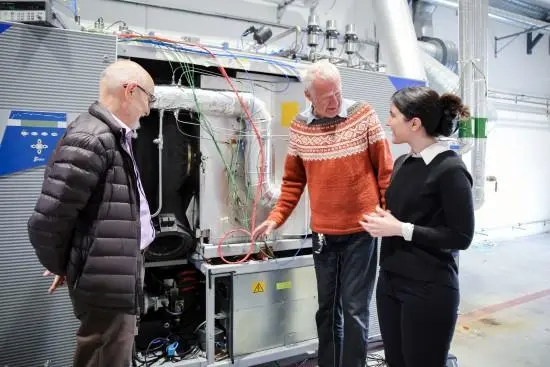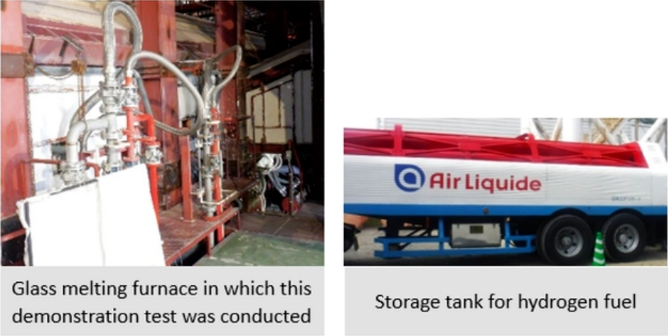AGC successfully uses hydrogen as fuel in glass production tests.

Japanese glass manufacturer AGC has successfully conducted demonstration tests of glass production using hydrogen as fuel. The trial was conducted at the electronic float glass manufacturing plant at the Kansai Factory Takasago Plant (Takasago City, Hyogo Prefecture).
This is the first time AGC Group has conducted trials using hydrogen in a production furnace.
The trial, conducted with support from Air Liquide Japan, will apply its hydrogen burner to an existing conventional oxygen combustion process using natural gas as fuel.
In this test, AGC verified the technical issues of using hydrogen fuel and oxygen combustion technology in glass production, including glass quality, impact on furnace materials, flame temperature, furnace temperature, and nitrogen oxide (NOx) emission control.
Figure 1 The AGC verified the technical issues of using hydrogen fuel
The NOx concentration in the gas emitted from this test was kept at the same level as 100% natural gas while maintaining the required temperature of the glass melting furnace.
With the goal of full deployment, AGC will conduct expanded testing of the combustion capabilities of hydrogen burners and consider conducting empirical testing at AGC Group's global bases to determine the application scope of hydrogen combustion technology.
AGC Group is developing various technologies to use the most appropriate greenhouse gas emission reduction measures based on regional characteristics and timing.
The testing follows demonstration testing in June 2023 using ammonia as fuel.
AGC Group stated that it will continue to promote sustainable development operations in the mid-term business plan "AGC plus-2023" and strive to achieve the goal of net zero carbon emissions by 2050.
Disclaimer: The above views do not represent the position of LIJIANG Glass, and the copyright belongs to the original author and source. The content of News is the author's personal opinion, and it does not mean that LIJIANG Glass agrees with his opinion and is responsible for its authenticity. LIJIANG Glass only provides references and does not constitute investment and application advice.



